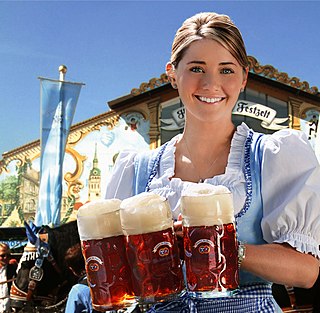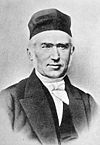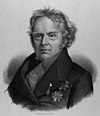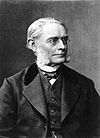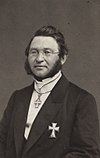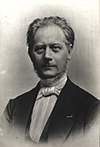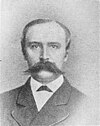
Her Majesty's Principal Secretary of State for Education is the chief minister of the Department for Education in the United Kingdom government. The position was re-established on 12 May 2010. Under the provisions for devolved government in the UK its remit applies only to England, covering;

The Department for Digital, Culture, Media and Sport (DCMS) is a department of the United Kingdom government, with responsibility for culture and sport in England, and some aspects of the media throughout the whole UK, such as broadcasting and internet.

The post of Minister for Women and Equalities is a ministerial position in the United Kingdom Government Equalities Office, an independent department within the wider Home Office that has responsibility for addressing all forms of discrimination, with particular emphasis on gender inequality. Its counterpart in the shadow cabinet is the Shadow Secretary of State for Women and Equalities.
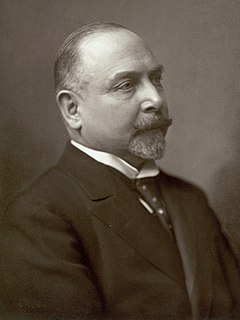
The Danish Social Liberal Party is a social-liberal political party in Denmark.
Prime Minister Anders Fogh Rasmussen retained his parliamentary support in the 2005 Danish parliamentary election, and was able to continue as head of his government. On 18 February 2005, he presented his updated cabinet, the Cabinet of Anders Fogh Rasmussen II. The main issues of the cabinet has so far been an administrative reform that slashed the number of municipalities and replaced the thirteen counties with five regions.
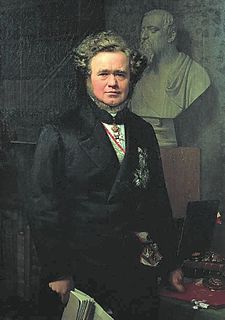
Carl Christian Hall was a Danish statesman. Hall served as the Council President of Denmark, first from 1857 to 1859 and again from 1860 to 1863.

The Ministry of Health, Welfare and Sport is the Dutch Ministry responsible for public health, health care, quality of life, social work and sport. The Ministry was created in 1951 as the "Ministry of Social Affairs and Health" and had several name changes before it became the "Ministry of Health, Welfare and Sport" in 1994. The Ministry is headed by the Minister of Health, Welfare and Sport, currently Hugo de Jonge (CDA), assisted by one State secretary, currently Paul Blokhuis (CU), and the Minister for Medical Care, currently Bruno Bruins (VVD).

Ditlev Gothard Monrad was a Danish politician and bishop, a founding father of Danish constitutional democracy in 1848-49 but also led the country as Council President in its huge defeat during the Second Schleswig War of 1864. Later, he became a New Zealand pioneer before returning to Denmark to become a bishop and politician once more.

Education Minister of Denmark, or Minister of Education in Denmark, is a Danish minister office currently held by Merete Riisager.
The Minister for Culture of Denmark is the Danish political minister office responsible for culture, head of the Ministry of Culture of Denmark.
Minister for Ecclesiastical Affairs of Denmark is a Danish political minister office. The main responsibility of the minister is the Danish People's Church.
A culture minister is a Cabinet position in governments. The culture minister is typically responsible for cultural policy, which often includes arts policy and measures to protect the national heritage of a country and cultural expression of a country or subnational region. This responsibility usually manifests in the accompanying ministry, governing the following:

Peter Christian Kierkegaard, was a Danish theologian, politician and Lutheran bishop of Aalborg from 1857 until 1875, and brother of Søren Kierkegaard. As a theologian of the official church, he had on several occasions criticized his brother's works, notably at the Roskilde Ecclesiastical Conventions in 1849 and 1855. However, he delivered the eulogy for his brother at the Church of Our Lady.
Karl Apfelbacher was a German mathematician who served as minister for higher public education in Upper Bavaria-East. He was a student of Arnold Sommerfeld and Heinrich Tietze at the University of Munich, where he received his doctorate in 1939. He went into teaching mathematics and science, as well as administration, in secondary schools. In 1964, he was cited as being Oberstudiendirektor at the Oberrealschule in Burghausen, Altötting. On October 16, 1964, the school was taken over by the Bayerischen Staatsministeriums für Unterricht und Kultus.

The Minister of Culture and Church Affairs is a councilor of state and chief of the Norway's Ministry of Culture and Church Affairs. Since 16 October 2013 the position has been held by Thorhild Widvey of the Conservative Party. The ministry is responsible for the government's policy related to culture, church affairs, religion, media, sports and gambling. Subordinate agencies include the Gaming and Foundation Authority, the National Archival Services, the National Library, the Arts Council and the Media Authority. The portfolio includes issues related the Church of Norway.
An education minister is a position in the governments of some countries responsible for dealing with educational matters. Where known, the government department, ministry, or agency that develops policy and delivers services relating to sports are listed; overseen by and responsible to the education minister. The first such ministry ever is considered to be the Commission of National Education founded in 1773 in the Polish–Lithuanian Commonwealth.

The Cabinet Secretary for Culture, Tourism and External Affairs, commonly referred to as the Culture Secretary, is a Scottish Government Cabinet position with responsibility for Culture, the arts, relations between the Scottish Government and the European Union and other international affairs. The Cabinet Secretary is assisted by the Minister for International Development and Europe.
A Ministry of Religious Affairs is a government department responsible for religious matters, including:

St. Mark's Church is a church at the end of Julius Thomsens Plads in the Frederiksberg district of Copenhagen, Denmark.

The Ministry of Education and Vocational Training (MEFP) is the department of the Government of Spain responsible for proposing and carrying out the government policy on education and vocational training, including all the teachings of the education system except university education, without prejudice to the competences of the National Sports Council in matters of sports education. Likewise, it is also the responsibility of this Department the promotion of cooperation actions and, in coordination with the Ministry of Foreign Affairs, the promotion of international relations in the field of non-university education.


